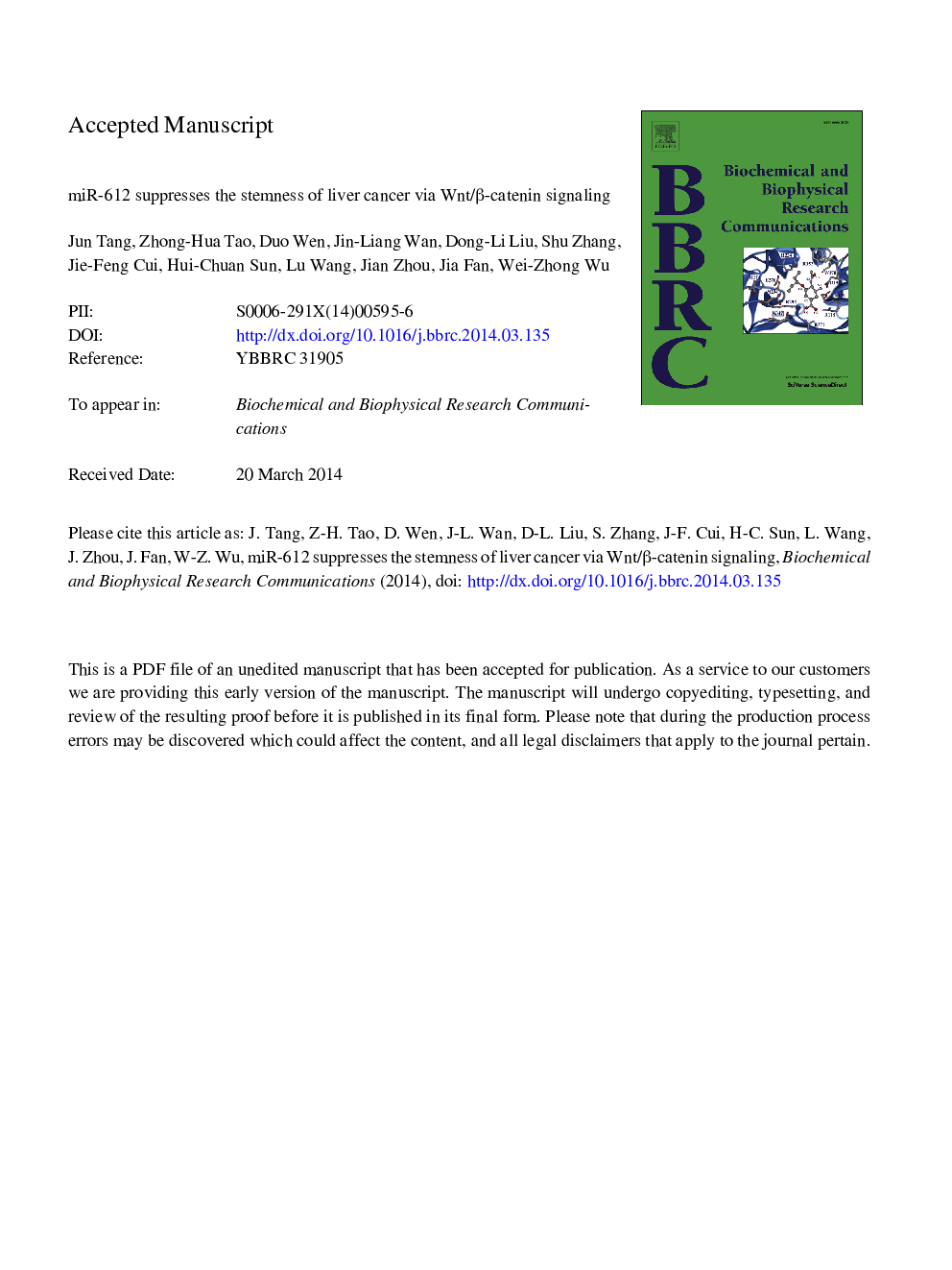| Article ID | Journal | Published Year | Pages | File Type |
|---|---|---|---|---|
| 10756042 | Biochemical and Biophysical Research Communications | 2014 | 26 Pages |
Abstract
Previous research showed that microRNA-612 (miR-612) has inhibitory effects on cell proliferation, migration, invasion, and metastasis of hepatocellular carcinoma (HCC). AKT2 was confirmed to be a direct target of miR-612, through which the epithelial-mesenchymal transition (EMT) and metastasis of HCC were inhibited. Our present findings reveal that miR-612 is able to suppress the stemness of HCC by reducing the number and size of tumorspheres as well as clone formation in soft agar, and to relieve drug resistance to cisplatin and 5-fluorouracil. In addition, miR-612 hampered the capacity of tumorigenesis in NOD/SCID mice and redistributed the tumor invasive frontier of miR-612-modulating cells. Finally, our findings suggest that Wnt/β-catenin signaling is required in the regulation of EMT-associated stem cell-like traits by miR-612.
Related Topics
Life Sciences
Biochemistry, Genetics and Molecular Biology
Biochemistry
Authors
Jun Tang, Zhong-Hua Tao, Duo Wen, Jin-Liang Wan, Dong-Li Liu, Shu Zhang, Jie-Feng Cui, Hui-Chuan Sun, Lu Wang, Jian Zhou, Jia Fan, Wei-Zhong Wu,
